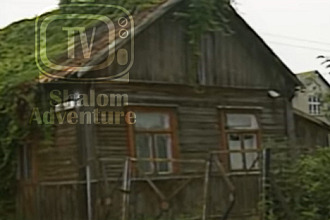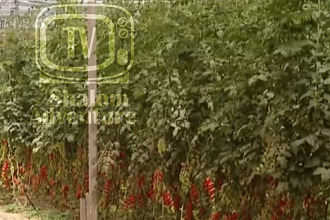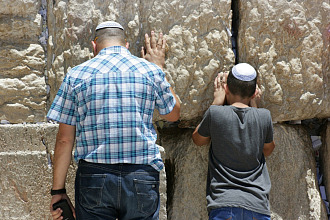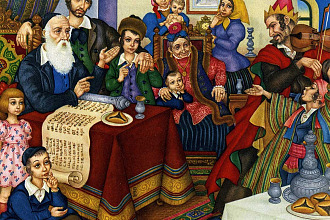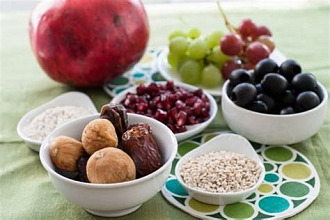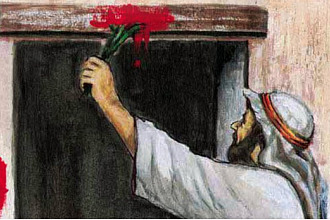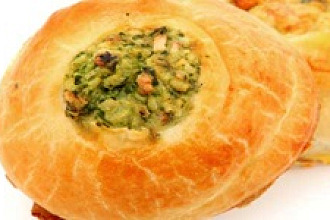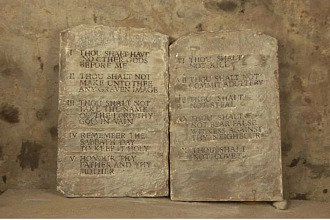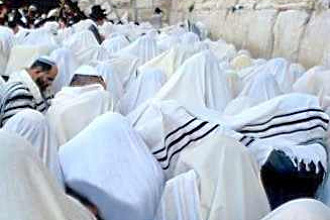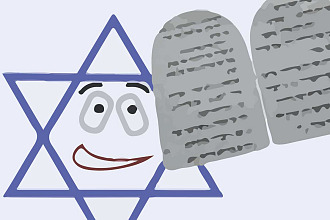From night one of the festival of Sukkot, when that first meal is enjoyed with family and friends; to each succeeding night when the lulav is waved and Praise Psalms chanted; to the Feast's finale with Shmini Atzeret and Simchat Torah, the prevailing tone of the Holiday is one of JOY!
The joy is a shared one, with many synagogues actually building "community sukkot" enabling neighbors and friends to join in the festivities. Sukkot celebrations typically consist of traditional (and delightful) delicacies such as "stuffed cabbage and kreplach containing fruit or fall harvest vegetables" as well as "dishes made with honey and pastries". (Parsons) Delectable dinners are often complemented with festive music and God-centered conversation, creating a sanctified atmosphere of joy and jubilation.
The importance of the lulav cannot be understated. Special processionals, called hakafot, are held during Sukkot where you'll find congregants "[marching] around the sanctuary waving the lulav and recounting the Hallel or Praise Psalms" (Kasdan).
In summary, the people of God are called to celebrate and rejoice with one another during this set-apart time of Sukkot. Ancient Jewish sages are said to have commented, in regard to the celebratory nature of Sukkot: "He who has not seen the rejoicing [at Sukkot celebrations] has never seen rejoicing in his life" (Sukkah 5:1; quoted by Parsons). "He who has not experienced the joy of salvation in Yeshua has never tasted joy in its fulness!"




